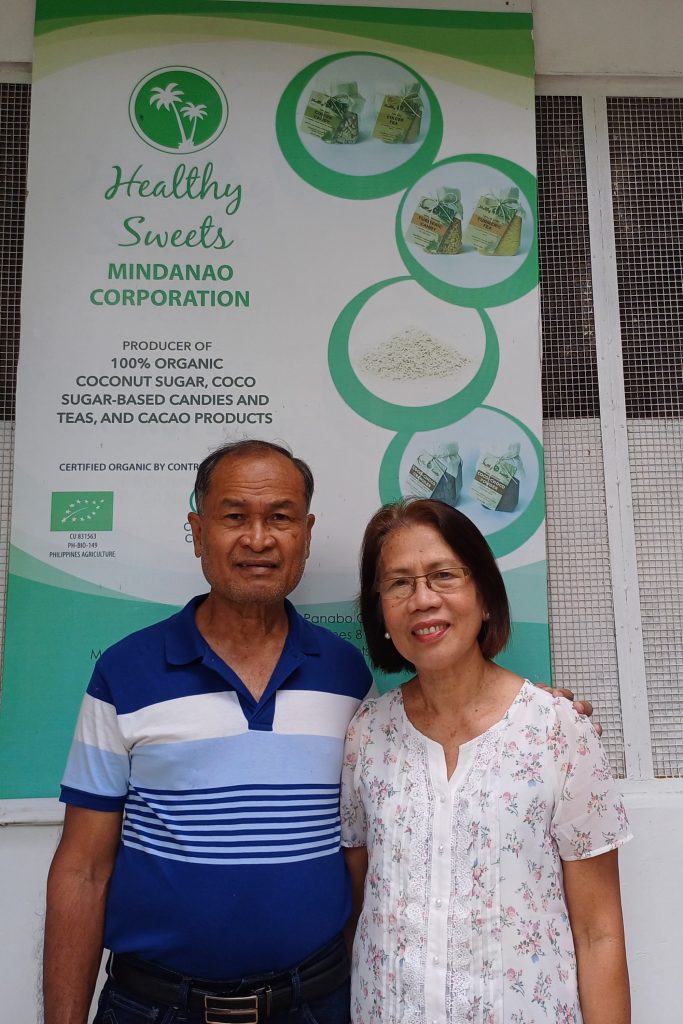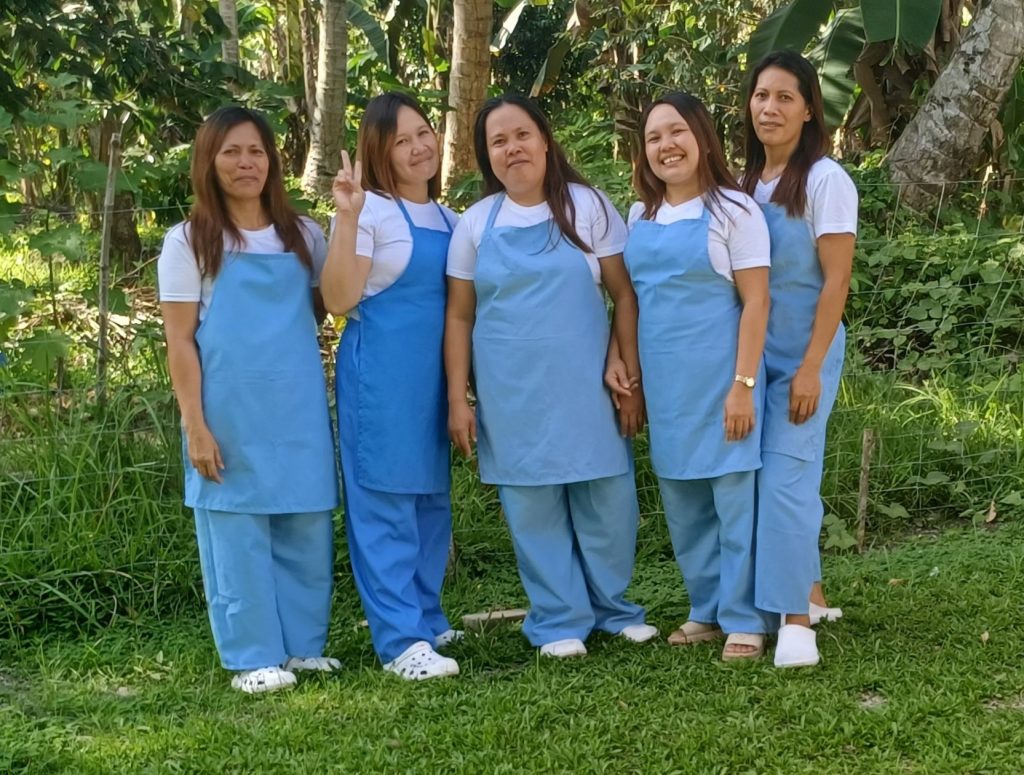Betty and Ervin went from strength to strength as their exports to the European Union empowered communities in Panabo, Davao del Norte.

A tale of transformation
Back in the early 2000s Betty and Ervin More, both development workers, bought a one-hectare coconut farm and embarked on a journey to cultivate trust in organic farming practices among local farmers in Panabo, Davao del Norte.
By transitioning the one-hectare farmland damaged by years of chemical use into an organic haven to bring back its fertility, their story is one rooted in sustainability and empowerment.
Betty shares, “All the crops were applied with organic inputs, and we diversified the coconut farm with fruit trees, vegetables, root crops, and herbs. Livestock became our source of organic inputs.”
In less than two years, the land was renewed, yielding a twofold increase in production and income. Their success inspired some neighboring farms within a two to three-kilometer radius to follow suit, thus sowing the seed for creating a wave of organic farming.
Silver lining
However, plummeting coconut prices in 2008 pushed Betty and Ervin to explore alternative ventures. Research led them to the health-conscious path of coconut sugar production.
With personal savings of Php 250,000, they established a 20-square-meter coconut sugar production facility within the farm. They seek guidance from the Philippine government’s Department of Health’s (DOH) Food and Drug Administration (FDA) to implement good manufacturing practices. Healthy Sweets Mindanao Corporation emerged as a family-owned social enterprise, committed to fair trade and organic coconut sugar production.
Betty reflects, “We employed all women in the processing of coconut sugar, enabling them to earn an income of their own. Coconut farmers in neighboring farms also sell their coconut sap to Healthy Sweets, uplifting their living conditions.”
Initially, labor-intensive, the coconut sugar making process has evolved into a semi-mechanized system, maintaining premium product quality while empowering women workers.
In 2011, Healthy Sweets diversified its offerings, introducing coco-sugar-based candies and teas. By 2016, it transformed into a corporation, marking a new chapter in its journey.
The turning point: exporting to the European Union (EU)
Exporting opportunities arose in 2014.
Their production facility expanded from 20 to 100 square meters. Their dedication to Kaizen (continuous improvement) impressed a Japanese buyer. The organic certification from European Union (EU) and Japan Agricultural Standard (JAS) paved the way for their entry in the export market.
Healthy Sweets’ resilience reached international shores as they exported to Japan and the European Union (EU), benefiting from the Generalized Scheme of Preferences Plus (GSP+).
The support from the Philippine government’s Department of Trade and Industry (DTI) for business matching and participation in national and international fairs has been instrumental in the company’s export journey.
Before the COVID-19 pandemic, Healthy Sweets managed to export to the EU, in Estonia, in particular. And was able to gain from the benefits of the GSP+ for exporters and importers in 2015.
The four-year extension in the scheme that grants zero duties to Philippines on thousands of locally made products for export to the EU, has renewed Betty’s efforts to secure more European buyers.
Rising with ARISE Plus
Healthy Sweets has also benefitted from the EU-funded ARISE Plus Philippines project, which further enhanced its export capabilities through tailored coaching sessions with an emphasis on quality.
This support is helping to produce safe and top-quality products for the local and international markets and has enabled the company to improve its documentation and update its Hazard Analysis and Critical Control Points (HACCP) and Food Safety manuals for better export facilitation.
Making a difference
Betty emphasizes their commitment to uplifting livelihoods and enabling decent work opportunities in farming communities. Their enterprise fosters empowerment of women workers.

“We could not give in to very low prices because one of our main objectives is to extend livelihood to men and women in the rural communities, and enable decent work opportunities for economic growth,” she notes. “Our women workers are relying on their salaries to help their families. The work they do in our social enterprise assures them that their children can go to school regularly. Barangay Katipunan has no local high school facility and children need to commute to the adjacent barangay or city center to study.
“Women workers are empowered because their capabilities have improved. They can already afford the fare and allowance of their children in going to school. They are now able to send their children to college. But most of all they can now decide on their own income and can independently meet personal needs.” she adds.
As their journey continues, Betty and Ervin More exemplify how sustainable practices and social entrepreneurship can change lives, one sweet success at a time. ♦
The ARISE Plus Philippines project is enabling Philippine exporters to take advantage of European Union (EU) market access and the trade privileges granted under the Generalized System of Preference (GSP+). It supports the overall EU-Philippines trade relationship and trade-related policies.
ARISE Plus Philippines is a project of the Government of the Philippines, with the Department of Trade and Industry as lead partner together with the Department of Agriculture, Food and Drug Administration, Bureau of Customs, the Department of Science and Technology, as well as the private sector. It is funded by the EU with the International Trade Centre (ITC) as the technical agency for the project.
Date of release: 12 April 2024



